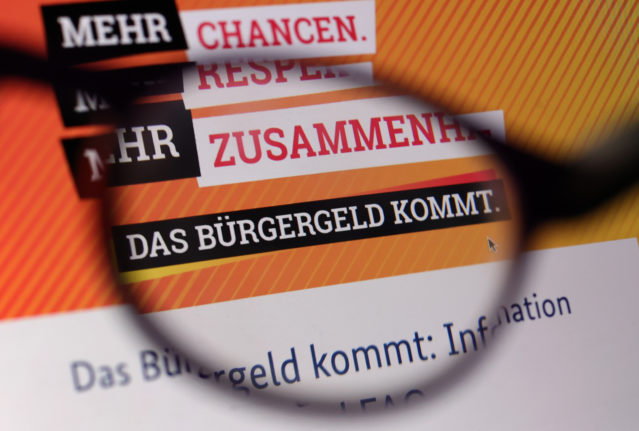An au pair will predominantly help a family with their childcare responsibilities, but may also be expected to undertake basic household duties like cooking and cleaning. In return for this work, you earn a monthly allowance and your host family will cover the cost of living and health insurance.
Even at the best of times, however, many run into issues of privacy, separating work from their social lives and at times have their generosity taken advantage of. The pandemic has only exacerbated these challenges.
Here’s what you need to know to make the best of the experience, even in the worst of times.
Working hours
If you are spending time with the family out of hours, you might feel an obligation to help with cooking, clearing up and entertaining the children, meaning you work much longer than is healthy or legal. It is worth remembering that au pairs in Germany are legally only allowed to work six hours a day, and must have at least four evenings and one day off per week.
READ ALSO: What you need to know about teaching English in Germany
Many host families will assume that if their au pair is in the house, they are also free to help with household tasks and might ask you to carry out duties outside of normal hours. With Kitas (nurseries or kindergartens) and schools closed during much of the past year, families have turned to their au pairs for extra childcare.
Though you may be met with expectations to work overtime, try to politely make it clear to your host family that you cannot always be at their beck and call.
Finances
For many, au pairing is a necessary financial decision and can be the only way to experience a new country at a young age. The au pair allowance in Germany is just €280 a month, despite the work often being quite gruelling.
For the legal working hours, this allowance means that au pairs earn just over €2 per hour in Germany and so should feel no responsibility to work overtime. The absence of rent, health insurance costs and other living expenses does mean that the allowance provides some freedom to explore the local culture – take advantage of this where you can.
Choosing a family
One of the most important factors when deciding to work as an au pair is finding a family that you will get along well with. Most au pair websites have messaging features where you can get in touch with a family before you decide to travel. Arranging a video call is the best way to get a sense of your hosts. The site most people use to find a host family is Au Pair World.
It is perfectly acceptable to decline a family’s offer of work after meeting them; this is much less painful than suffering through months of household tensions.

At this time, it is important to remember to discuss the family’s expectations around you travelling and socialising while you are staying with them and to think about how you can still make the most of your time abroad.
When you are living alone or with younger people, it can feel easy to justify meeting up with other households. Living with a host family, particularly if any members of the household are vulnerable, can complicate this, so be aware of the extra responsibility you will hold.
Travel
It is possible for most people to travel to Germany as an au pair within current guidelines, though you should be aware of up-to-date guidance as to whether you will need to quarantine or complete a test before or after travel. See the Ministry of Health’s current guidance on travelling to Germany.
READ ALSO: When will Germany relax restrictions on international and domestic travel?
Visas
Au pairs from EU member states will not need a visa to work as an au pair in Germany. All you will need is to bring with you a passport or identity card and to register at the local Einwohnermeldeamt (residency office) where you should present your au pair contract.
The process for au pairs travelling from further afield is slightly more laborious, and can take up to three months – giving an insight into German bureaucracy. You will need to present documents including your au pair contract and confirmation of insurance, and might be asked to provide proof of your German level. Au Pair World sets out the full guidelines here.
READ ALSO: How non-EU nationals can get a residency permit to live in Germany
Privacy
When so much time is spent at home, the boundaries between work and family time can easily blur. Since moving to Berlin as an au pair at the end of February, I have had to spend much of my time at home due to Covid regulations. Though sharing a house is in many ways a blessing and means I can never go long without bumping into someone for a chat, it has been a struggle in terms of privacy.
If your cooking and bathroom facilities are shared, as is the case for so many au pairs, you can feel a lot of pressure to socialise, even at times when you feel you need your own space. Since our movements and social lives have been so restricted over the past year, this pressure has only increased.
How much time you spend with your host family is of course a matter of personal preference, but in my case it has been necessary to set out time to spend by myself.
Even if it is not explicitly exerted by a host family, au pairs can often feel pressure to be on their best behaviour, so taking time to relax is vital.




 Please whitelist us to continue reading.
Please whitelist us to continue reading.
Member comments